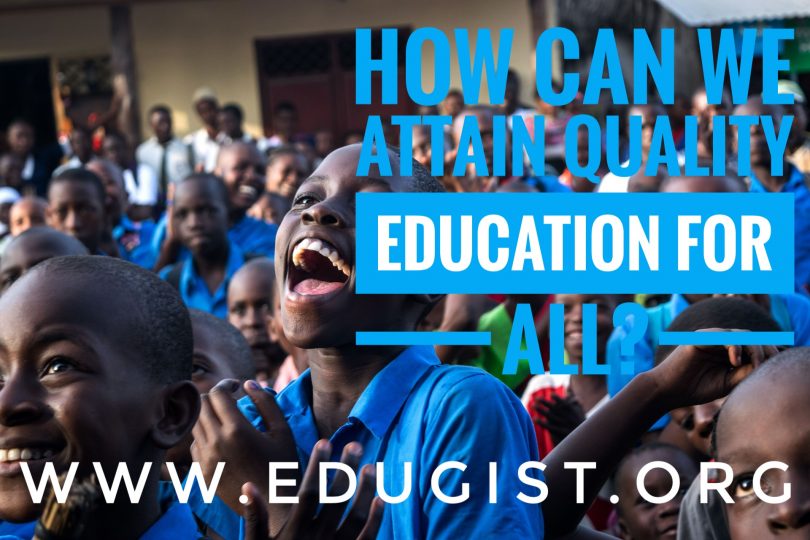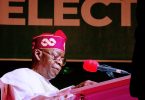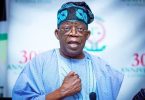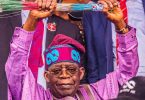Why do we need education in our life?
Have you ever asked yourself the question? Perhaps you had when you were feeling bored in the history class.
Well, most of us spend significant years of life in education to make sure we have a better life in future. But there are millions of people who do not even have access to the basic education.
Education, which is considered as one of the fundamental human rights, is a luxury for millions of people. Like you and I, those people also want a better future for themselves, but unfortunately, there are a lot of challenges that prevent a huge portion of our society to dwell in the shadows of illiteracy.
What are the major challenges in education?
The global literacy rate is growing steadily throughout the years, but one needs to acknowledge the fact that the world population is increasing as well. While accommodating all the children into a classroom has been one of the major challenges for the schools, the following obstacles have made quite difficult to present everyone with equal opportunities in education on a global scale.
Lack of funds:
According to the website of Global Citizen, the global donor support for education is dropping at an alarming rate. In fact, the amount of total aid which is allocated to education has dropped each year since 2011, and the current education aid is 4% lower than what it was in 2009.
The crisis of trained teachers:
In one out of every three countries in the world, less than 75 percent of the teachers are trained to national standards, as per Global Citizen website. Also, there aren’t enough teachers who can help us achieve even the primary education for all.
The exclusion of children with disabilities:
There are almost 93 million children with disabilities in today’s world most of which don’t have access to any kind of school. In some of the third-world countries, more than 95 percent of the children with disabilities are out of school.
Gender inequality:
Even though there have been a lot of advancements in girl’s education, more than 130 million of girls around the world are not enrolled in schools at this very moment. While poverty is one big issue, the belief that girl child has no use of education is one of the major factors that deny a girl child her education.
Apart from these major challenges, the factors like lack of infrastructure, poor nutrition and political status of the country often contribute to the situation.
Well, factors like the lack of funds, crisis of trained teachers and the political condition of the country do need attention from higher authorities like UNESCO, but it is unfortunate to see people keeping children from receiving a proper education, just because of their gender or disability.
The role of UNESCO in achieving quality education for all:
With combined efforts, challenges like the lack of infrastructure, fund crisis and the deficiency of trained teachers can be overcome in a considerable amount of time. However, we cannot achieve the goal of universal primary education, if the girls and the children with disabilities are treated differently.
United Nations has made some commendable efforts in the past to improve the status of global education, and it will continue to do so in the foreseeable future as well. The “Education for All” movement conducted by UNESCO is one such initiative that aimed to meet the basic educational needs of all children, youth and adults by 2015. However, it did not achieve the objectives set by UN.
In 2015, leaders from 193 different countries adopted the 2030 agenda for sustainable development where “quality education for all” (goal no. 4) was recognized as one of the primary goals to achieve sustainable growth worldwide. Interestingly, some ambitious targets have been set in the SDG 4 (quality education for all) which can lead the way for equal opportunities in education to everyone.
The SDG 4 targets involve the following:
- All the girls and boys should complete free, equitable and quality primary and secondary education by 2030 so that they can provide SDG 4 effective learning results.
- All the girls and boys should receive quality early childhood development, care and pre-primary education by 2030 so that they can be ready for the primary education.
- Every man and woman should have equal access to affordable and quality technical, vocational and tertiary education (university education as well) by the year 2030.
- The number of adolescent and adults, who possess relevant skills (including technical and vocational skills) for entrepreneurship, employment or other decent jobs, should increase substantially by 2030.
- The gender disparities in education should be eliminated, and there should be equal access to all levels of education and vocational training for the people with disabilities, children in vulnerable situations and the indigenous people by 2030.
- All the youth and a substantial portion of adults (men and women alike) should achieve literacy and numeracy by 2030.
- All learners should acquire the necessary skills and knowledge required to promote sustainable development by the year 2030.
- Develop and improve education facilities that are child disability and gender sensitive, and offer safe, non-violent, comprehensive and effective learning condition for everyone.
- The number of scholarships available to the developing countries, in several least developed countries, small island developing states and African nations should expand globally to ensure for enrolment in higher education, including vocational training and information and communications technology, technical, engineering and scientific programs in developed counties and other developing countries by the year 2020.
- The supply of skilled and qualified teachers, including through international cooperation for teacher training in developing countries, specifically the least developed countries and small island developing states should be increased substantially by 2030.
The context of equal opportunities for all has been addressed a number of times in these targets. However, these targets do not tell us how we can achieve quality education for all by 2030.
United Nations Development Programme (UNDP), which is working towards the fulfillment of SDGs, certainly has a plan of action to achieve these aforementioned targets. Even though there hasn’t been any definite statement about the approach, it is believed that the following measures can be taken to deliver quality education for all by the year 2030.
Measures to achieve quality education for all:
- Technological advancements:
It is believed that technology will play a pivotal role in transforming the way education is delivered in today’s world. Students no longer need to ask others “do my assignment”. They can now receive online assignment help in just a few clicks on their computers.
- Significant changes in the education model:
Clearly, the approach towards educating the children needs to be upgraded. Perhaps, technological advancements can contribute to change the existing education model for better. Also, the material used for teaching needs to be updated, and more stress should be put on critical thinking.
- Emphasis on relevant skills:
The targets clearly point out that the technical and vocational skills are important aspects of quality education, and to ensure everyone is not just educated, but also skilled enough to perform the role of a professional effectively.
- Raising awareness about the education for all:
Lack of awareness is one of the significant challenges in achieving the goal of quality education for all. Every one of us needs to contribute as an individual to eradicate gender biasness, narrow mindset and our perception about the differently abled people.
Hopefully, UNDP and other organizations engaged in achieving Sustainable Development Goals (SDG) are working on the same lines to accomplish the targets. Perhaps they are working on something even better. As an individual, our objective should be to educate people about the importance of education for all.
Author bio: Ammie Jackson is a social activist who has been associated with a number of campaigns on the topic of education. Currently, She works as an academic expert where she offers assignment help to the students.









24x7homeworkhelp is a name that you can totally trust for finishing your assignments and homework on time. We have some expertise in giving task arrangements at extremely moderate expenses. We get multitudinous homework and task demands from understudies once a day from different nations of the world like US, UK, Australia, and Canada
Are you facing issues get better Marks in any Exam then consult with us and get Essay Writing Help here we are leading theassignmenthelp.com.au
UNESCO is doing a great job in field of education and hope in the coming years, they will work more on it and educate more and more children.
If you ever need solution for your accounting course related trouble contact an HW expert.
The educational system in some countries are in dilapidated condition, because some leaders are unpatriotic leaders, all these are happening as a result of lack of qualitative education.
Excellent article, I like your post. Thank you so much for sharing.
Nice post, Its really helpful for all users. Thanks for sharing with us.
one of the best article I have read. this article is everything that one must know. wonderfully written .hoping for many amazing articles.
Thanks for sharing such a nice blog.
Great blog here! helpful info. Thank you so much for wonderful info.
nice post!
informative post! kindly check out. I recommend
very nice post. just visit us and let the best and most trusted handle your assignments
A well-crafted blog, we need more content like this.
Well-crafted blog, we need more content like this.
this is wonderful information keep up the nice work.
Great content